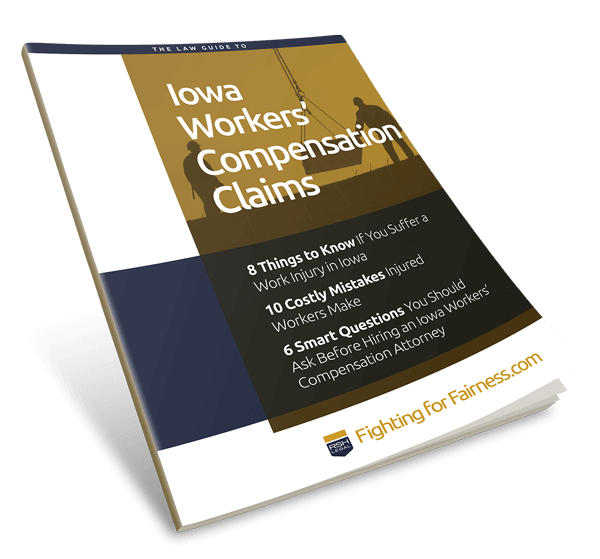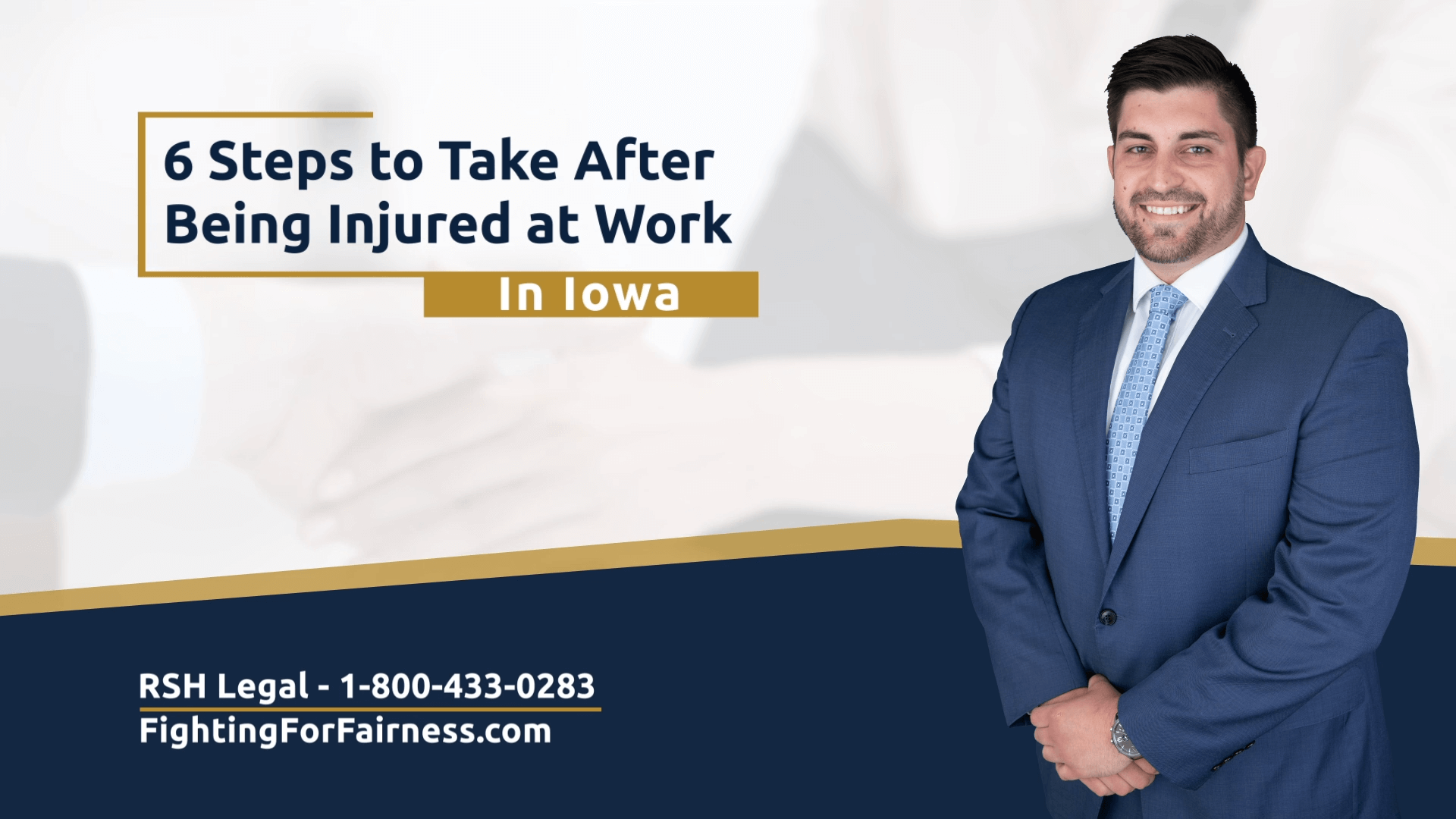The Iowa Workers’ Compensation system can be a much more complex system than injured workers often expect.
Who Qualifies for Iowa Work Comp Benefits?
An injured worker fits into the Iowa workers’ compensation system when that person:
- was an employee at the time of the injury and
- suffered an injury “arising out of” and “in the course of” the employment.
Iowa’s workers’ compensation system is no-fault, which means that the injured worker is eligible to receive benefits as long as the injury was not intentionally self-inflicted.
What Types of Workman’s Comp Benefits Can I Receive?
Once you can prove that you have a workers’ compensation claim, the employer’s workers’ compensation insurance carrier must provide you certain work comp benefits.
Specifically, there are three main categories that we want to make sure people are aware of:
- Medical benefits
- Temporary disability benefits, and
- Permanent disability benefits.
For medical benefits, the employer is responsible for all medical bills related to your work injury. In other words, they have the duty to provide reasonable care to make you better.
Now, like most of the workers’ compensation system, there is a trade-off. The employer can choose which doctors and physical therapists treat your work injuries. You can receive treatment until you’re healed or the case has settled.
The next category of benefits that injured workers have a right to is temporary weekly benefits. Here, the workers’ compensation insurance carrier is obligated to compensate you for any time you’re off work due to your injury. If you are dealing with the insurance adjuster, you’ll often hear it referred to in three ways: temporary total disability, temporary partial disability, or healing period.
These benefits should be provided on a weekly basis to replace your wages while you’re recovering from your work injury. These benefits continue until:
- You are able to return to work
- You are medically cleared to return to work, or
- You have reached “maximum medical improvement.”
Maximum medical improvement, or MMI, is a term that means that a medical provider has said that the injury has gotten as good as it is going to get.
After the temporary benefits conclude, it is possible that the injured worker is owed permanent disability benefits. Permanent disability benefits are paid based on a medical provider’s evaluations and determinations as to whether the injury caused a permanent impairment to that body part.
The amount of permanent disability benefits depends on the severity of the injury and the location of the injury. For example, a partial permanent injury to a hand – meaning a part of the hand is permanently damaged – is paid out on a scale of 190 weeks. This means 10% permanent impairment equals 19 weeks of permanent disability benefits.
Because this can be complex, we recommend you speak with an experienced Iowa workers’ compensation lawyer before you decide to settle your case.
Settling Your Iowa Workers’ Compensation Claim
Insurance companies will often try to quickly offer a small amount to settle your case so they can pay you less money than you deserve. Don’t be fooled, though – a settlement in workers’ compensation is often much more complex than the insurance adjuster makes it seem.
If you aren’t sure whether the benefits being provided for your work injury are fair, get a free, no-obligation case evaluation by calling RSH Legal today at 1-319-774-1903.




